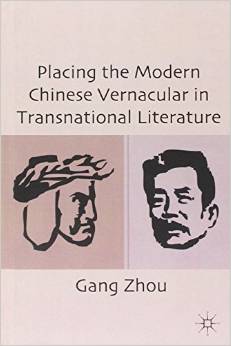Placing the Modern Chinese Vernacular in Transnational Literature

This is the first systematic study of the vernacular movement in modern Chinese literature of the late nineteenth and early twentieth centuries from the perspective of comparative literature. Drawing on the experiences of vernacular movements in other times and societies (Italian, French, German, English, Japanese, Indian, Arabic, Turkish, Vietnamese), and on the concept of world literature, this book is a new and radical rereading of the origins of modern Chinese literature. Examining the Chinese literary revolution in the context of vernacularization in Renaissance Europe, the genbun itchi movement in Meiji Japan, modern Turkish language reform, and the revival of classical Hebrew in modern Israeli society, this book situates the "triumph" of the vernacular in modern China in a truly global comparative setting.